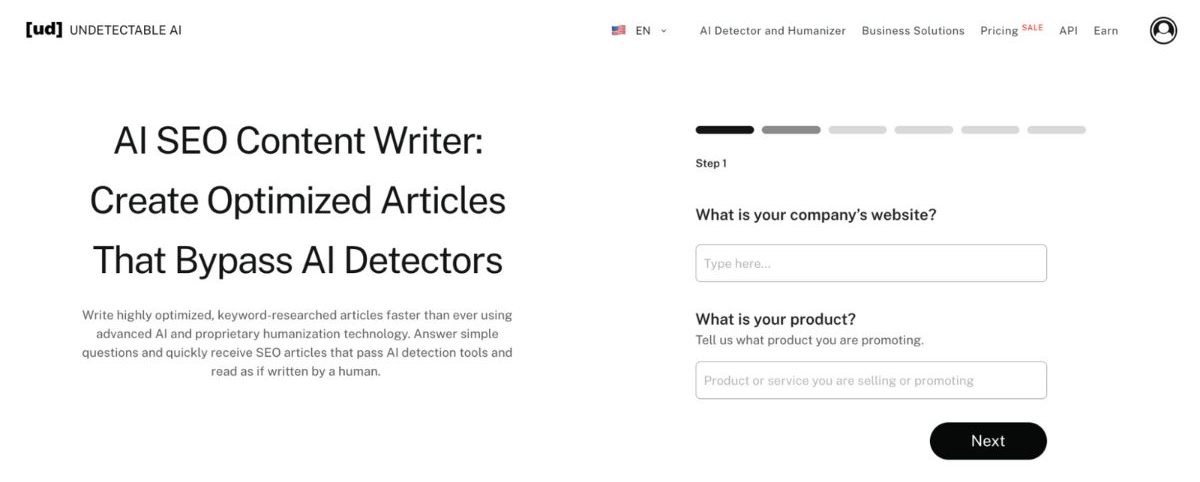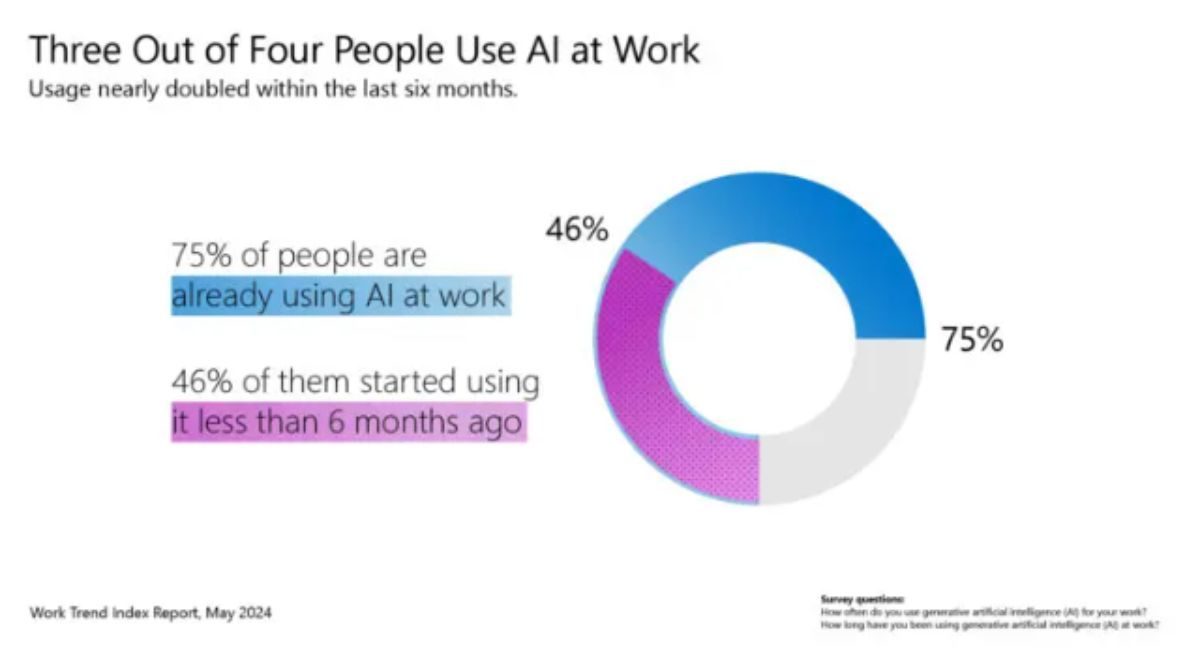AI is that 24/7 assistant that’s ready to help anyone, anywhere, anytime. It’s no wonder AI skills are what many employers now want their employees to have.
They even see AI as an integral part of all business operations within the next five years.
Think about having AI-powered chatbots ready at your fingertips for instant responses, AI analytics that provide quick data insights, and automated systems that handle all the routine work – giving us, human employees, the time we need to focus on the much bigger tasks that make an impact.
It’s the working dream.
But to make this possible, we need AI experts. This is why the demand for AI engineers and developers is greater than ever.
AI skills can involve a whole lot of possibilities. From machine learning to programming, content creation, and more, these skills help professionals get the most out of AI.
You learn the AI skills in demand to grow your expertise, and businesses can leverage AI for success. Everyone wins.
Now, with so many AI skills to learn, we understand if it can be overwhelming to figure out where to start.
But your search ends here. Know everything there is to know about getting started with this powerful tool and pursuing that career in AI for your professional growth.
The Most In-Demand Technical AI Skills for 2025
Breathe easy and release that AI anxiety because, contrary to popular belief, AI won’t be replacing humans.
In fact, we strongly think that AI, without having humans in the loop, can be short-lived in many business processes.
This is what drives the demand for skills in artificial intelligence.


Never Worry About AI Detecting Your Texts Again. Undetectable AI Can Help You:
- Make your AI assisted writing appear human-like.
- Bypass all major AI detection tools with just one click.
- Use AI safely and confidently in school and work.
Job postings for AI-related work on the popular job-hunting site Upwork have been reported to surge by more than 1,000% compared to previous years. AI’s role in the workplace is now a necessity to stay competitive.
When organizations automate repetitive and time-consuming tasks, they can let their employees become more productive and contribute to key business strategies.
This makes them feel work is more worthwhile, promoting a healthy work-life balance.
AI also creates new job opportunities because companies need experts who can handle these new systems. So, get to know the AI skills you need to learn to be ahead of the pack.
Proficiency in the Most Popular Programming Languages

One of the most obvious AI skills to learn is within the IT field. While AI can reduce the demand for some traditional jobs, it certainly generates lots of new ones in the tech field.
Creating and developing AI systems takes skill and time, and upcoming machine learning engineers and AI developers can swoop in with their proficiency in different programming languages.
Here are the most popular programming languages to learn for AI:
- Python: Python is commonly used in AI because of how simple and readable the language is. This has a vast collection of libraries and frameworks like TensorFlow, Keras, and PyTorch, which all help facilitate AI and machine learning development.
- R: This is a language and environment more designed towards statistical computing and graphics. It’s a popular language among data scientists for its powerful data analysis capabilities and it has a comprehensive collection of statistical tools that can be easily used.
- Java: Known for its portability and scalability, Java is usually ideal for large-scale enterprise applications. This programming language has frameworks like Deeplearning4j for building neural networks along with other AI applications.
- C++: This programming language is commonly used in developing high-performance AI applications because of its performance and efficiency. You can rely on this for game development, real-time systems, and applications requiring a huge amount of computational power.
- Julia: This is a high-level and high-performance programming language made for technical computing. It has been gaining popularity in the AI community for its speed and ability to handle complex mathematical computations with ease.
Start out with these popular programming languages so you can position yourself as an expert in AI development.
Tap into the growing demand and explore the many new career opportunities that this new field has to offer.

To strengthen your technical problem-solving skills, you can also use Undetectable AI’s Math Solver to break down complex equations step by step, making it easier to understand the math behind AI and machine-learning concepts.
Creating Content With AI Creation Tools
Content creators have been using AI to make money, thanks mainly to the efficiency it offers.
Using AI-powered tools streamlines the whole creative process by reducing the time a project takes to finish and helping overcome challenges like creative blocks – these take a toll on the mind over time.
Take, for instance, content writers. The power of AI can ease the writing process by providing a solid foundation or creating a draft that the writer can then polish.
Tools like the Undetectable AI SEO Writer can generate content within seconds. Imagine the effort it took in the past, days and even months, to achieve high organic traffic, which is now done in a fraction of the time.

That being said, AI-generated content also comes with its own set of concerns.
If left as is, content that’s been created purely by AI can be detected as non-human, and this can affect your brand’s credibility and the effectiveness of your materials.
This is why human intervention is still important.
To make sure that all the content you produce stays human, use the Undetectable AI Detector.
This not only detects AI content but also includes a humanizer feature that adjusts the content to match human writing.
These tools are what can help you create the best possible content while still saving time and maximizing business efficiency.
Combine the strengths of AI with human expertise so you can produce top-quality content in no time.
Ready to experience the difference? Try the Undetectable AI widget below quickly and easily (English only). Just input your text and see how it can transform your writing!
AI Tools Integration into Workflows
Here are the ways how AI tools can improve workflows:
- Handles routine tasks like data entry, scheduling, and customer service.
- Analyzes large amounts of data to help managers make better decisions at a much faster rate.
- Monitor and analyze production processes in real-time, so you can identify defects and guarantee consistent quality.
- Improves an organization’s internal communication with a collaborative platform that has AI features like capturing meeting notes and even providing real-time language translation.
- AI-powered project management tools that can assign and track the progress of tasks.
- Reduce operational costs thanks to the automation of manual tasks.
Knowing which AI tools to use pays off because it gives you the huge advantage of already knowing the software.
Identify the specific areas where AI can add value to a business, and find the AI tools that best fit the industry you’re interested in being part of.
Data Visualization Skills

Data visualization is the AI skill that makes complex data understandable. Without it, you can’t take advantage of AI’s full potential. To work efficiently with large datasets, professionals also benefit from tools that let them query data using natural language, or SQL AI tools like BlazeSQL, which lower thebarrier between raw data and actionable insights.
This is a minefield of potential because while employees are ready for digital transformation, only one in three in four have been trained to gain the AI skills in demand.

As you can see, this is for jobs that require extensive data analysis: data scientists, business analysts, and marketing professionals, to name a few.
After transforming datasets into clear, visual formats that are easier to interpret, teams can quickly spot patterns and trends.
This is important for communicating insights to stakeholders who may not have a technical background.
AI can recommend the most suitable display for your data and target audience.
It can then analyze and summarize your data using natural language, which can then help identify patterns and irregularities.
In essence, data visualization is what drives key business decisions.
To learn AI-powered data visualization skills, you’ll need a solid understanding of data analysis and statistics.
Be sure that you’re familiar with the most popular data visualization tools and software out there – Tableau, Power BI, and programming libraries like Matplotlib and Seaborn in Python or ggplot2 in R.
You can then practice creating different types of visualizations using real-world datasets.
Online courses are everywhere, too, and even free YouTube video tutorials can provide a more structured learning path.
Natural Language Processing (NLP) Engineering
With Natural Language Processing (NLP) engineering, you can harmoniously bridge computers and human language. NLP lets machines understand, interpret, and respond to text and speech.
This language is useful across a wide range of industries. For example, in customer service, chatbots built from AI language models can handle basic inquiries and provide support round-the-clock.
In healthcare, NLP can help process and analyze large volumes of medical records.
You can also use this in finance to detect unpredictable market trends and fraud. The possibilities are endless.
The role of an NLP engineer is to make these technologies come true.
AI engineers design and build models that can handle natural language data. By creating algorithms that can understand and generate human language, engineers let businesses maximize their data.
Essential Soft Skills Required for Artificial Intelligence
Don’t neglect what soft skills can do. While you need the technical know-how for AI to work in business, having interpersonal skills and traits is equally important to let AI and human teams work together well.
Learn these essential soft skills to complement your technical abilities.

Curiosity and Creativity
Drive innovation with AI. Generative AI, in particular, can enhance the creative process because it helps with producing all types of content: text, images, music, you name it.
As AI-generated visuals become more advanced, tools like AI Image Detector can help verify whether an image is real or AI-generated, promoting trust and accuracy in digital media.
Using AI can inspire curiosity because creatives can work further to push boundaries and experiment with new concepts. Their time is freed from the mundane tasks, after all.
Although AI and creativity combined together are still in their early stages, it’s already changing the way creatives work.
More than eight out of ten creative professionals already report using AI tools in their projects.
But as with all things, use AI responsibly. Creatives should ensure that their AI-generated content adheres to ethical standards.
It’s a responsibility to respect intellectual property and only use AI for what it is – a tool that enhances human creativity rather than completely replacing it.
Having balance allows you to use AI as a partner in the creative process.
Critical Thinking
Critical thinking involves analyzing information objectively. With this, you can evaluate different perspectives fairly and make informed judgments.
In AI, you need critical thinking to develop and refine algorithms, interpret data, and solve complex problems.
This helps AI professionals assess the validity of data sources and ensure their AI models are accurate and reliable.
There’s such a thing as AI bias that developers and engineers should address.
This form of bias occurs when an AI system produces results that are selectively biased because of incorrect assumptions.
It’s alarming because biased AI can lead to an unfair treatment of individuals or groups.
With critical thinking, experts can create more ethical and reliable AI technologies that work just as well for everyone.
Conclusion
Maximize your earning potential with essential AI skills. From hard skills to soft skills, having a well-rounded skill set is essential for success.
Learn and adapt to the growing power of AI technology to position yourself for big opportunities.
And to kickstart your journey in content creation, be sure to make Undetectable AI part of your workflow.
Undetectable’s AI SEO Writer can simplify your content needs in no time, while the AI Detector guarantees that your content stays authentic.
And if you’re having trouble, the humanizer fine-tunes whatever you need to resonate with your audience as you intend it.
So, learn AI skills and face the competition confidently because you know you have the edge to stay ahead.
